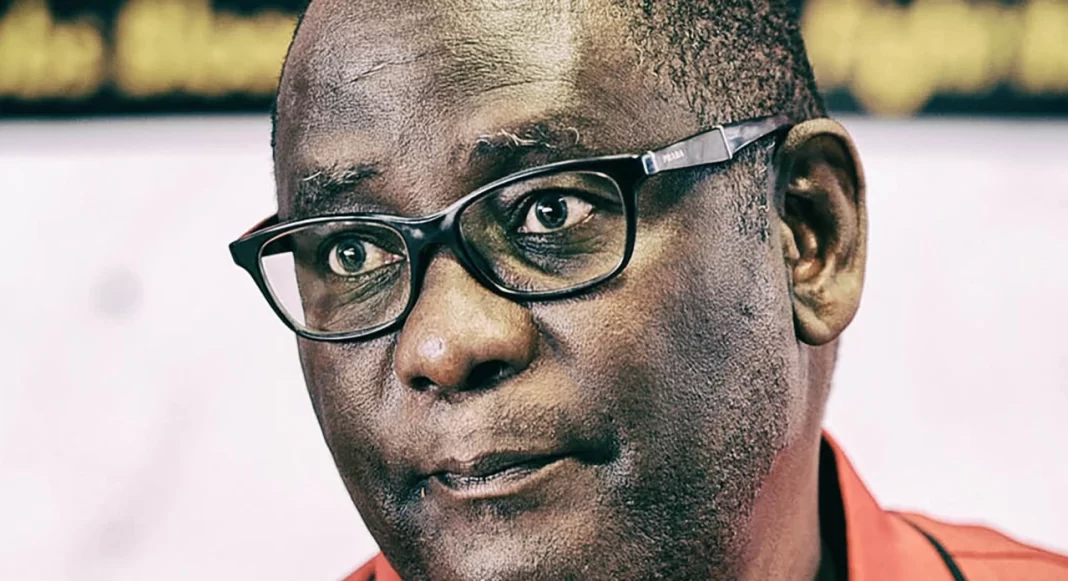By Amy Musgrave
The SA Federation of Trade Unions has warned that as long as South Africa continues to remain the most unequal society in the world, socioeconomic conditions for workers and the most vulnerable will continue to deteriorate.
In Saftu’s year-end statement, general secretary Zwelinzima Vavi said that 12.2 million people were unemployed, while the top 10% of the richest South Africans who owned 90% of the wealth, were celebrating their gains.
“We know that this period is the most painful season for workers, particularly the unemployed and youth trapped in a structural long-term unemployment crisis,” he said in a statement.
“There is no hope emerging on the horizon of this tragedy. The biggest challenge the country faces is that of structural unemployment, whose face remains the black majority, women, youth and people living in the former Bantustans and now mushrooming informal settlements around all cities.”
Vavi said the number of people living in poverty and skipping a meal a day continued to rise, notwithstanding government’s social programmes.
South Africa was facing an unprecedented social crisis. The levels of criminality, in particular violent crime, femicide and rape, continued to break world records, he said.
Another crisis was that in the 2023/24 financial year, over 122,000 teenagers became mothers, including 2,716 girls aged between 10 and 14, and 119,587 aged between 15 and 19.
This equated to nearly one in four girls falling pregnant before the age of 20, placing South Africa among the countries with the highest rates of teenage pregnancy globally, Vavi said.
At the same time, particularly amongst the youth, substance abuse had reached “pandemic levels”, and the carnage on the country’s roads underlined the catastrophic levels of unemployment, alcohol and substance abuse.
Vavi said that South Africa was also facing unprecedented levels of government neglect, with service delivery collapsing in many municipalities.
“Many parts of Gauteng, the economic hub of South Africa, have joined some of the rural areas that do not have drinking water. Water and electricity are among the most necessities of life.
“We celebrated the massive gains to ensure that these constitutional guaranteed fundamentals are accessed by those sidelined by apartheid. Suddenly, as we mark the 30th anniversary of democracy, increasing numbers of people are denied access to water and electricity, which is priced out of the hands of the majority,” he said.
Going into 2025, Saftu says that without a principled, unified labour movement, it will be near impossible to address these various challenges.
“Without principled unity in purpose, without ridding itself of foreign cultures and tendencies that threaten to render workers’ movement absolute, and without rooting out corruption and business unionism within its ranks, the trade unions will follow the liberation movements (to) the graveyard.”
It was ultimately up to unions to strengthen the voice of workers and communities, or face being left at the mercy of capitalism, Vavi said.
On the electoral front, he further warned that prospects were not encouraging in the short to medium term.
There were at least two political parties emanating from organised labour which may compete in 2026 local government elections for worker votes.
They are the Socialist Revolutionary Workers Party initiated by the National Union of Metalworkers of SA, and the Labour Party initiated by the Association of Mineworkers and Construction Union.
The former received a disappointing 24,000 votes in the 2019 election, but did not mobilise this year, while the latter attempted to get on the 2024 ballot “but missed gaining it for what appears to be technical reasons”.
While larger parties would likely dominate in the 2026 municipal elections because of the “neoliberal orientation” of the two main parties in the Government of National Unity, the ANC and the DA, Saftu did not endorse either.
It also believes that there are major problems with two parties positioned against the ANC – the MK Party and the EFF. Their leaders are not shining beacons when it came to fighting corruption.
“The working class desperately needs a mass-based party home where alliances are expected to be made with the many genuine progressive forces that exist in civil and political society, but has not found one as of yet.” Vavi said.
INSIDE POLITICS



